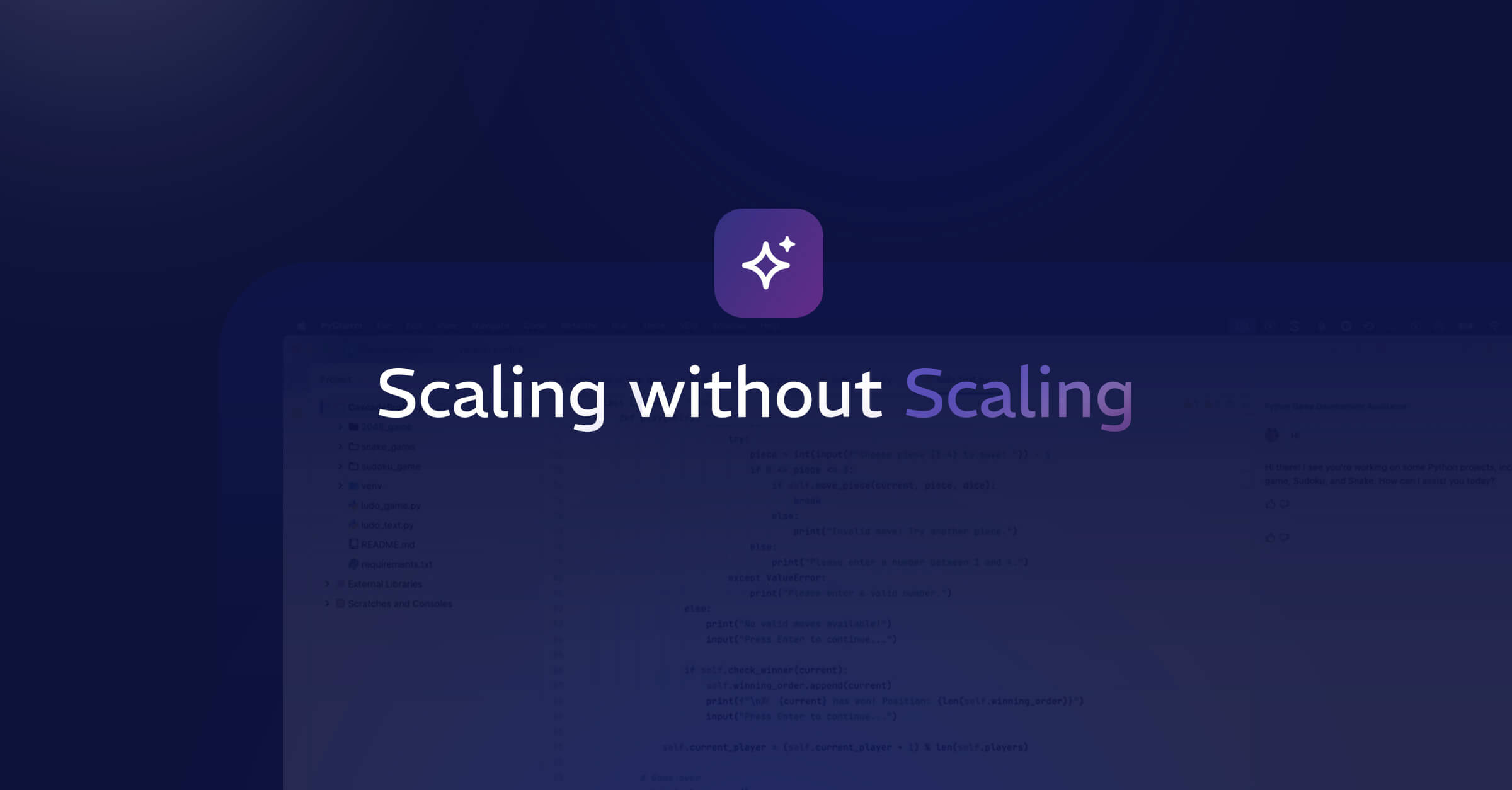
Scaling Without Scaling: How Surfboard Payments Uses AI to Multiply Developer Output
AI hype is everywhere, but measurable impact is rare. Here, AI has become part of our daily workflow in development and support, helping us achieve more without added complexity. This is how we built an AI-first culture that truly delivers.
Generative AI has become one of the most heavily discussed technologies of our time, but its impact is proving harder to measure than many expected. Earlier this week, MIT released a report showing that 95% of AI pilots are failing to deliver ROI. Markets reacted quickly, with some of the largest AI companies seeing immediate stock price drops. The study suggested that many enterprises have rushed into experiments without finding repeatable value, and that the real returns so far have been concentrated in back-office automation rather than in sales or marketing.
At Surfboard Payments, this finding rings true. We have not pursued AI because of hype, but because it offered a way to do more with the team we already have. Over the past year, our developers have quietly integrated AI into their daily workflow, and the outcome has been clear: higher output, faster cycles, and better support for our merchants. All without a proportional increase in headcount.
We talk about "scale without scaling" because that's exactly what AI has given us.
How AI Became Part of the Development Workflow
Like many tech teams, we started small years ago. Early experiments with GitHub Copilot helped with string handling and translations, but the productivity boost was limited. The real breakthrough came when our developers moved to AI-first IDEs, testing platforms like Cursor, Cline, and eventually standardizing on Windsurf.
What made the difference was not one tool alone, but the way the IDEs evolved in parallel with rapid improvements in the models behind them. Together, they became dramatically more capable in a short period of time. Developers began to experience compounding benefits — smarter assistance, stronger context handling, and more reliable support across the entire workflow.
Over time, the results became impossible to miss. Output more than tripled in a year, and just as important, the quality and consistency of delivery improved. Developers reported smoother planning, better structure, and fewer repetitive tasks. AI was not writing features on its own, but it had become a constant collaborator, supporting everything from planning to testing to review.
“This isn’t just about writing more code,” explains Asaph Abraham, CTO. “It’s about writing better code, faster. AI assists with planning, testing, and review. Our developers remain in control, but the AI removes friction from the entire process.”
Support That Scales Alongside Engineering
Engineering is not the only part of Surfboard that has felt this shift. Our support team has also built AI into the core of how it operates. Through AI-driven chat, email, and phone systems, nearly 70% of conversations are resolved automatically before human intervention is needed. Below is a graph showing the growth in resolved cases by AI vs human intervention over the past months after rolling out.

Over the past year, the total number of resolved cases has grown by more than fivefold, achieved with a small team dedicating only part of their time to support. The result is shorter response times for merchants, more reliable service, and a support function that scales in step with the company’s growth.
- In support, speed and accuracy are everything. AI allows us to deliver both at a level that would normally require much larger teams, says Martin.
Building an AI-First Culture: Our Approach
Our approach has been to treat AI as a tool inside existing workflows, not as a side project. Rather than experimenting broadly, we focused on the areas closest to our core operations: software development and customer support. This is where the day-to-day demands are highest, and where even small improvements compound quickly.
AI doesn’t replace ownership. It amplifies it.
By embedding AI directly into how our teams plan, build, and respond, adoption happened naturally. Developers use AI alongside their own process, not in place of it. Support staff rely on AI to handle common cases, freeing them to focus on the more complex conversations.
The result is consistency. Code ships faster, support responses resolve more efficiently, and teams feel in control of the process. As Asaph Abraham, CTO, puts it: “AI doesn’t replace ownership. It amplifies it. Developers and support staff are still accountable for outcomes, but AI gives them leverage they didn’t have before.”
The “Quiet Colleague” Effect
The phrase we use internally is “scale without scaling.” AI allows us to multiply the output of our teams without multiplying complexity. More features, faster cycles, and stronger support. All achieved with a steady base.
The wider AI market may be entering a trough of disillusionment. But in practice, carefully targeted deployments can deliver tangible, repeatable value today. For Surfboard Payments, AI has become less of a pilot program and more of a quiet colleague, working behind the scenes to help us move faster and serve merchants better.
And while this article has focused on how AI has reshaped our internal efficiency and culture, the story does not end there. We now have workflows and agents operating across departments from Legal to Operations and Sales, each designed to extend the same leverage into different parts of the business. In parallel, our external use cases for partners and merchants are proving to be just as transformative, though those deserve their own deep dive.
This piece is about efficiency and building an AI-first culture internally. In a future post, we will share how our AI products and agents are creating entirely new possibilities for merchants and partners.